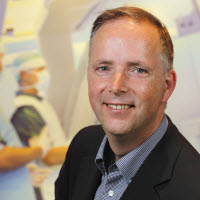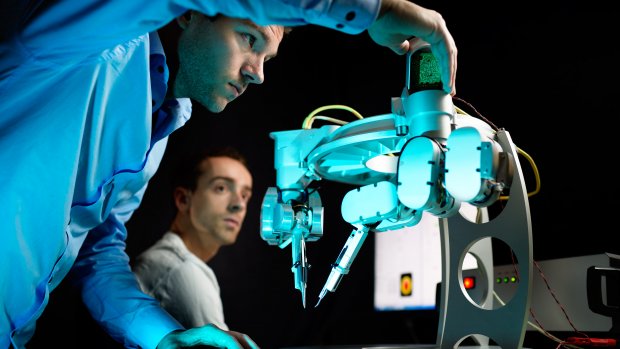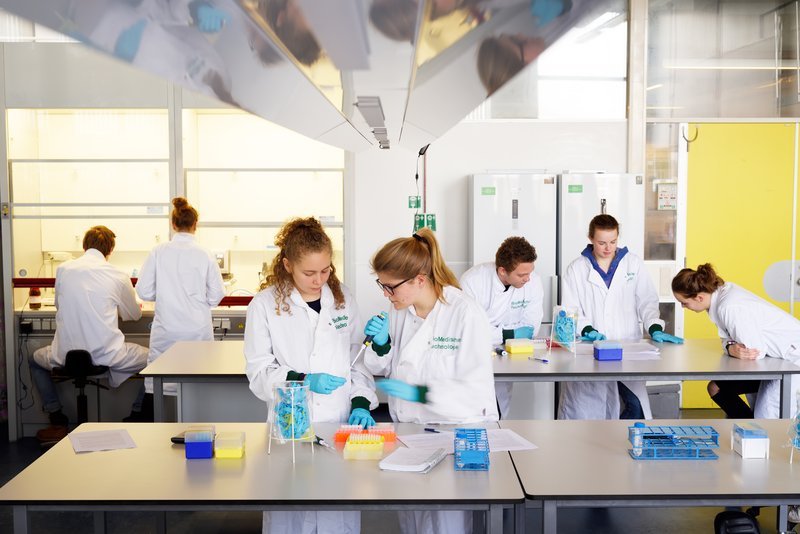
GÉRÔME FRIESEN
(Editor’s note: This post on TU/e’s Flagship partnerships program is part of Dispatches’ Tech Tuesday series covering technology and global management in Europe and Asia.)
There is a global war for talent, and universities are on the front lines.
At Eindhoven University of Technology, they’ve created the Flagship program as part of their strategy to lure global talent – students and faculty – to work with industry innovators.
So, why should you choose TU/e over, say, an American engineering school for your Ph.D.?
For starters, Flagship brings pioneering corporations such as Philips together with TU/e students in collaborations on serious research … and students are right in the middle of it, said Dr. Gérôme Friesen, TU/e’s manager for Strategic Industry Alliances.
The unique selling point of a Flagship appointment is, from the beginning, teachers and students work in multi-disciplinary teams with industry researchers, often in real-world settings such as hospitals.
About 96 percent of Ph.D. students coming into Flagship end up in the industry after graduating TU/e.
Flagship students get a head start, interacting far more – and at higher levels – with executives and corporate R&D than students in conventional programs, Friesen. Flagship students know how the “industry does things, know how the industry works,” he said.
“They also can see how challenging the research is for companies.
“When you have a Ph.D. from the Flagship program, you have a certain golden (glow) around your degree, which makes you more attractive to companies.”
About 5 percent of the Ph.D. is geared toward a career in science/academia in a dual-career ladder approach, of science and industry. This sets TU/e apart from other universities where there is no active dual-career option.

Flagship works because everyone buys in
TU/e uses the funding it gets from the corporates to recruit professors recommitted to the collaboration. But money isn’t the most important element, Friesen said.
“It has to be about passion, not just about more money.”
Here’s the Flagship formula:
• Big companies fund top professors for projects in jointly defined R&D roadmaps that attract the best students. “People only come to you if you have the best professors,” Friesen said. “And companies only hire the best (graduates.)”
• Corporates and academics all work in intense collaborations to develop new technology, then move those innovations to market faster and more efficiently.
• Flagship partner corporations get cutting-edge R&D in the collaboration. TU/e attracts world-class professors as well as students seeking real-world experience working with some of the world’s most innovative companies.
For the university, Flagship is a way to attract both the best professors and the best students.
“We want two things – long-term relationships, and the companies’ commitment for full-time Ph.D. students to work as researchers,” Friesen said.
“Industries have challenges, and they want to solve them through collaboration with universities, in this case TU/e. That’s what they’re paying for.”
Real world experience
 For engineering students, it’s a chance to work with industry veterans in a demanding real-world relationship … to really learn the business, he added.
For engineering students, it’s a chance to work with industry veterans in a demanding real-world relationship … to really learn the business, he added.
For example, one of the largest healthcare companies is using Flagship and TU/e students to get better outcomes by working directly with healthcare providers in hospitals, Friesen said.
The multinational, TU/e, and three hospitals in the Netherlands form a consortium.
TU/e also has a Flagship Telecom program with Dutch telecommunications giant KPN and lots more in the works.
Why is this attractive to Ph.D. students? Because Flagship gives them more than an immediate “in” with innovative companies that are potential employers … it gives them opportunities to collaborate with industry leaders.
Students get a LOT of attention. “When I did my Ph.D., I was put into a room with a lot of books,” Friesen said. “They said, ‘You’re a bright guy. Work it out.’
“Here, they have contact with medical specialists and researchers from the industry and they solve the puzzles together.”

Skills lab with students in Cardiovascular Biomechanics, BioMedical Engineering at TU/e
Problem solving
At the heart of Flagship is a symbiotic relationship. Big corporations are partners in a defined program, outsourcing part of their R&D to TU/e, monetizing products faster while saving money.
Flagship changes TU/e’s role from resource provider (student) to a research provider. One top Dutch official noted that “with my Flagship program, I basically have a virtual extra research group added to our own R&D department.”
In turn, TU/e involves its students.
Flagship’s symbiosis of public and private cooperation for the benefit of both industry and society could hold the answer to seemingly unsolvable problems, such as healthcare in the United States.
There are more and more treatments while patient behavior is changing, Friesen said: “Costs are going through the roof. So, healthcare systems are no longer sustainable.
“Things have to change.”
TU/e was born because Eindhoven-based companies such as Philips, Royal Dutch Shell, and DAF trucks and others needed a reliable source of talented engineers, Friesen noted. To this day, there’s “a lot of trust” between several innovative companies and the university.
Flagship has been so successful that it’s put TU/e in the upper echelons of global research universities.
One of the largest electronics companies in the world only has three universities they consider strategic partners including MIT and a university in China.
The third is TU/e.
More posts about TU/e Flagship:
TU/e Flagship: Collaborate on R&D, monetize faster AND keep IP revenue
About Eindhoven University of Technology
Eindhoven University of Technology in Eindhoven, Netherlands is one of the most highly rated technical research universities in Europe. Based on “industry income,” TU/e is ranked No. 1 in the world by Times Higher Education, the highest score for collaboration with industry as well as in the field of academic and scientific research.














